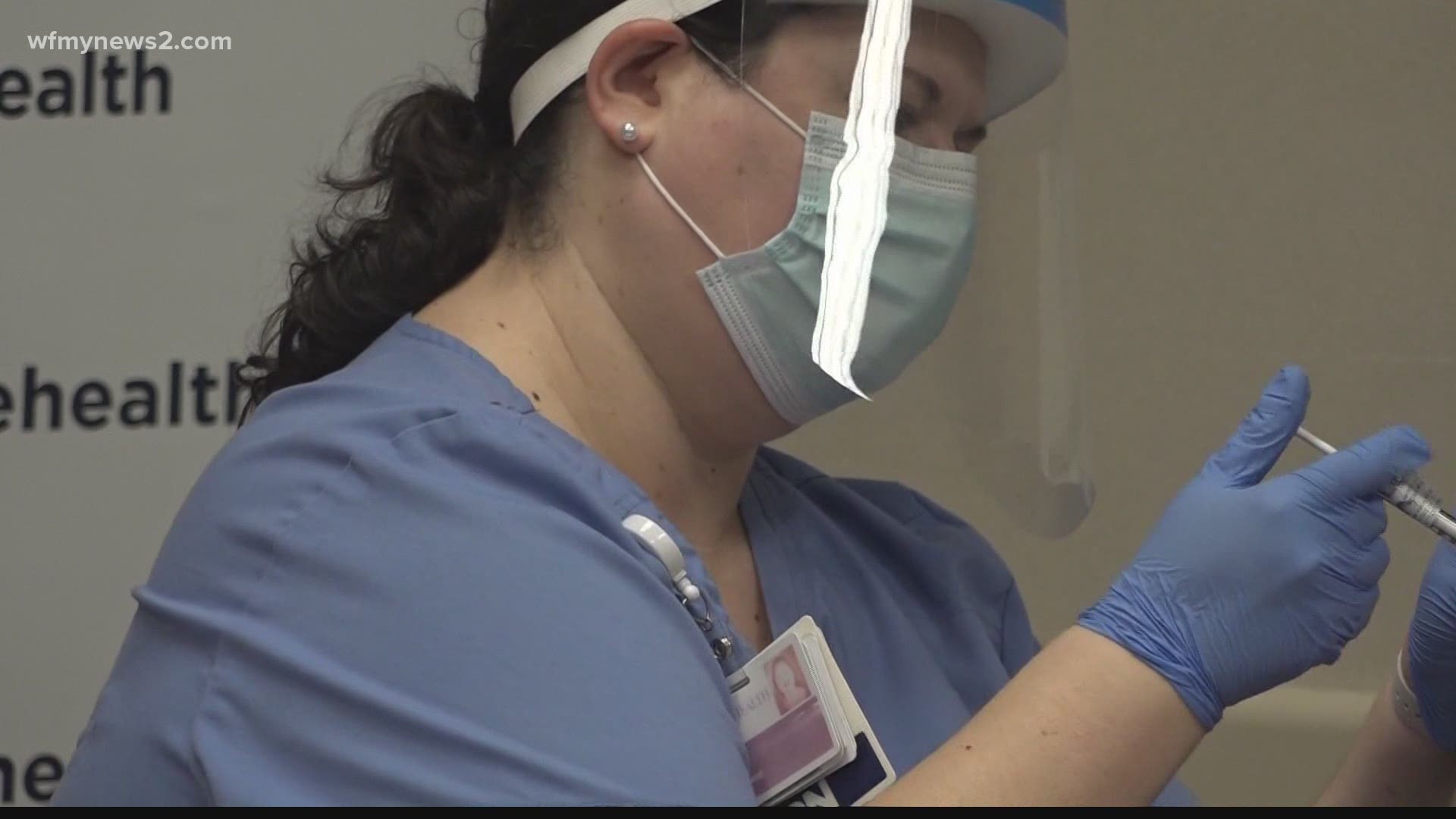NORTH CAROLINA, USA — COVID-19 vaccine appointments roll out and then go quick, but still, a survey found out not everyone is on board.
The survey by the United States Census Bureau sent surveys to more than one million households and received just over 68,000 responses.
Among those who said they haven't yet received the first dose of the COVID-19 vaccine, 51 percent said they 'definitely' plan to get it, 26 percent said they would 'probably' get it when available, compared to about 14% who said they would “probably not,” and 10% said they would “definitely not” get vaccinated.
Wake Forest Baptist Health Chief of Infectious Diseases Dr. John Sanders said while about a quarter of people said they might not get the vaccine, the results are still encouraging.
"That vaccine hesitancy is definitely one of our big concerns," said Sanders, "I wish the number was higher but let's start with the vast majority of us want to be vaccinated."
Sanders said Wake Forest Baptist Health conducted a similar survey to gauge the consensus in the Triad and got almost identical results.
"Our older members of the local community who answered our question, much more anxious and willing to get the vaccine, and our underrepresented minorities, the Hispanic community, and the African-American community, both expressed more concern about getting the vaccine," said Sanders.
Sanders says that concern is justified.
"There is justifiable, historically justifiable mistrust of the healthcare system, of the government and medical research that’s been conducted in years past so the African-American community is appropriately cautious," said Sanders.
Sanders said health officials are working on providing information to make everyone more comfortable taking advantage of the vaccine to protect themselves against COVID-19.
"These vaccines have gone through rigorous testing. They were not developed overnight, they were developed over decades of research they were tested extremely carefully," said Sanders.
Sanders adding that vaccines in the past have caused us to seemingly forget about other, once deadly infections in the future.

